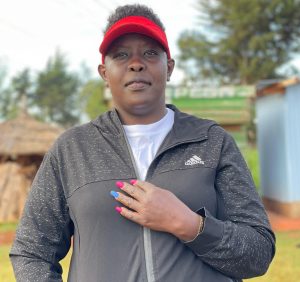UNEA 6:KEPSA Uderscores the Role of Circular Econony in Meeting Equitable and Just Environmental Goals

The Kenya Private Sector Alliance (KEPSA), which was a co-convening partner in the UN Science-Policy Business Forum on the environment special session organized at the sixth session of the United Nations Environment Assembly (UNEA-6) today, has stressed the urgency to transition to a circular economy to achieve a sustainable future amid rising economic and environmental challenges.
This has been emphasized by Kenya’s First Lady, H.E. Rachel Ruto, at the session’s plenary, who called for the private sector to “collaborate with like-minded stakeholders to pool resources and invest in nature-based solutions as a tool to fast-track the transition to a more sustainable and circular economy.”
KEPSA recognized the circular economy concept as a strategy for promoting sustainable production and consumption, reducing pollution and waste through designs that maximize material utility, extend lifespan, and use regenerative approaches, enabling system transformation for sustainable development.
“But we must acknowledge that we can only achieve environmental equity when justice exists. Therefore, the transition to circularity must be supported by genuine collaboration between developing and advanced economies, and advanced economies honoring their climate change mitigation and adaptation pledges,” KEPSA CEO Ms. Carole Kariuki emphasized.
In 2022, more than 55% of global greenhouse gas emissions originated from activities such as mineral and fossil fuel extraction and biomass farming and their transformation into various products like fuels, materials, and food. When considering emissions resulting from changes in land use, this figure surpasses 60%. This trend underscores a concerning reality that despite the commitments made in the 2015 Paris Agreement, efforts to mitigate climate change have fallen short of adequately addressing the environmental impacts of resource utilization.
Moreover, the “Global Resources Outlook” from the International Resource Panel highlights the potential for significant CO2 emission cuts of more than 80% by 2060 through circular economy practices, sustainable consumption, and enhanced resource efficiency. “Such strides are attainable and promise to bolster planetary health and foster economic growth,” said Ms. Kariuki.
A tracking of the achievement progress for the Sustainable Development Goals (SDGs) in 2023 by the United Nations paints a dire picture, with progress on over 50% of targets rated as weak and insufficient, while 30% are considered stalled or reversed. Therefore, the increased private sector’s investment in innovative solutions will go a long way in spearheading environmental equity and Justice.
Subsequently, KEPSA has called for renewed commitment from the private sector to accelerate the implementation of the SDGs and advance sustainable development for all. This aligns with the focus of UNEA-6 on multilateralism as a solution to tackle the triple planetary crisis of climate change, nature and biodiversity loss, and pollution and waste.
However, speaking at the session, the ICEA Lion Insurance Company Kenya CEO Phillip Lopokoiyit noted a lack of balance in the private sector’s investments towards climate mitigation and adaptation projects. “95% of financing is geared towards climate mitigation, and only 5% is channeled to adaptation. Banks can finance adaptation by investing in resilient projects, thus minimizing the risks. At the same time, insurance companies can share the risks by working with governments to insure vulnerable communities to enhance adaptation. It is one of the ways we can balance investments if we’re to deal with climate change in an efficient, inclusive, and resilient manner,” he underscored.
In 2018, Kenya’s SDG index was positioned 125 out of 162 countries with a slightly improved dashboard score of 57.3% from 54.9% in 2017. The highest SDG score was SDG 12 on sustainable consumption and production, with a score of 93.1% from 80.3% in 2017, followed by climate action at 84.8%. The lowest score was on SDG 10 on reducing inequalities, with a score of 36.3%.
The private sector in Kenya has demonstrated a significant commitment to advancing SDGs through various initiatives. These efforts encompass adopting innovative solutions to ensure sustainable production and reducing vulnerability to economic, social, and environmental shocks.
These sentiments were reflected in a Business and Industry Major Group Statement presented by the Executive Vice President of the World Business Council for Sustainable Development (WBCSD), Mr Dominic Waughray, at the opening plenary of the UNEA-6 on February 26th. He noted the private sector’s critical role in addressing the triple-planetary challenges globally: “Businesses are important engines of innovation, as the mobilizers of investment, and as builders of capacity. From SMEs and youth startups that drive local economies to the diversity of global businesses, we are delivering progressive, equitable, green, and sustainable jobs.”
However, while economic growth has been notable, much remains to be done to realize the transformation envisioned in the SDGs. Countries, particularly Kenya, must prioritize subsets of SDGs based on national priorities, capacities, and immediate needs. Adopting a tailored multilateral approach will allow nations to focus their resources and efforts on goals most relevant and achievable within their socio-economic context to meet equitable and just environmental goals.






